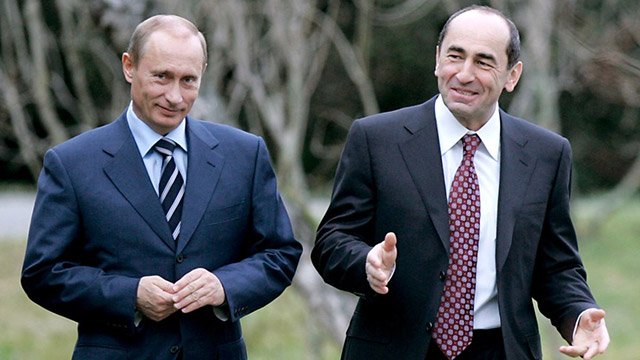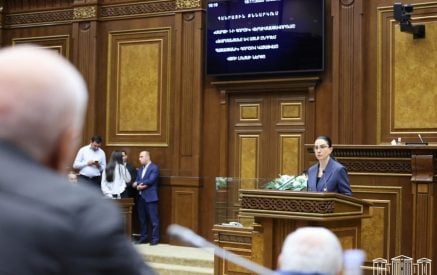“The alternative to demarcation is not to have demarcation,” said Robert Kocharyan, the second president of Armenia, at a press conference on Monday, explaining that this is Armenia’s way out in such a weak situation and there are many opportunities to substantiate it: you do not have diplomatic relations, you do not have mutual dialogue, and without diplomatic relations, demarcation cannot go forward.
“After all, when a person puts clothes on, first they put on underwear, then some other clothes, and finally they put a coat on. In other words, the opposite does not happen,” he said figuratively.
To the journalist’s observation, not signing the demarcation-delimitation agreement means not having a fixed border with Azerbaijan, which allows Azerbaijan to carry out any encroachment on the borders of Armenia, the second president answered, “I do not consider it right to simplify the situation in this case because we are not saying that there is no border. Not doing delimitation at this moment is not to say that we have no borders at all, but it has the following consequences. The confirmed delimitation means that you recognize the territorial integrity of Azerbaijan, which will allow Azerbaijan to finally tell us and Russia that you have recognized my territorial integrity. We will say yes, and they will say if you have recognized it, then I will build a customs point on the Lachin corridor. What are you going to say? You are going to say that it is not outlined in the November 9 document. Yes, I will wait for 3.5 years, when the issue of extending the mandate of peacekeeping troops must be discussed, then during dry negotiations I will tell Russia there is no need, the issue is settled, there is no problem, the peacekeepers can go, and after 1-2 months of negotiations you take a step back and say, only on one condition, my post should be here. They will set up that customs point, which will stand quietly for a few months, and will watch, as it happened in Kapan. We do not control huge areas today, the danger of delimitation is to make this scenario possible. You should always put yourself in the opponent’s shoes. You should ask yourself what you would do to solve this problem. At the same time, you have to say what argument you have against it. There is none. This government wants to do that so that afterwards, it can say that it has nothing to do with the Karabakh issue and throw it into the pockets of the Russians. I am somewhat aware that such issues are happening now. The government is saying, let them negotiate with the Russians, what’s it to us?”
Nelly GRIGORYAN





















































